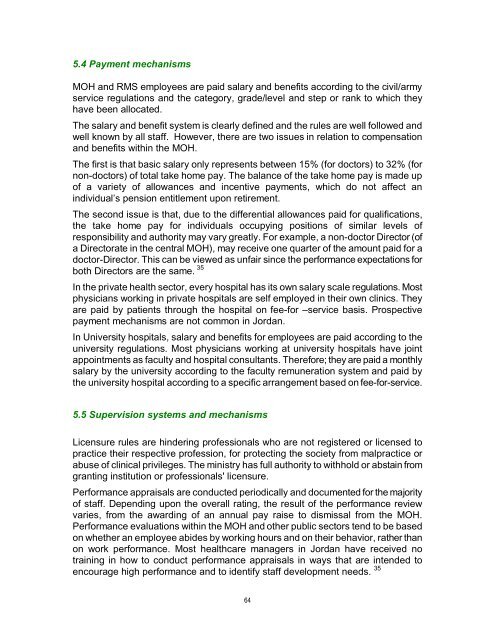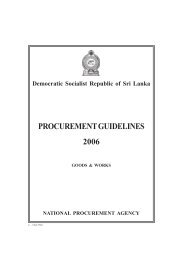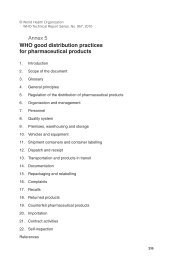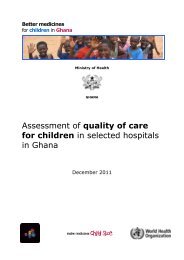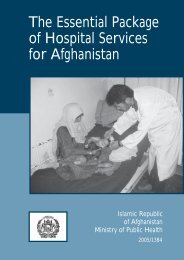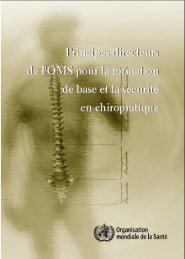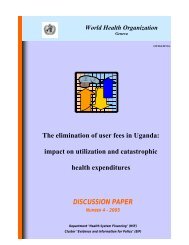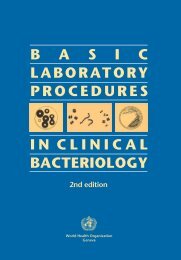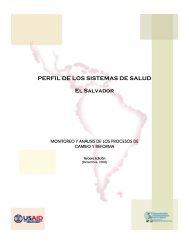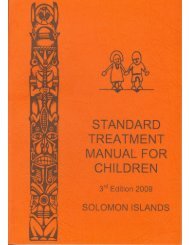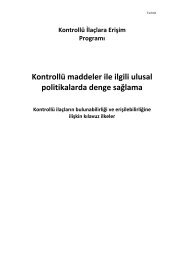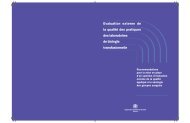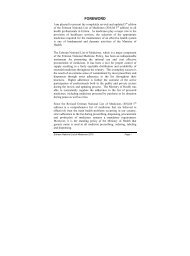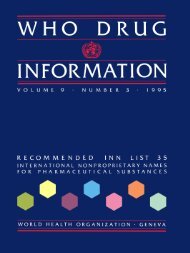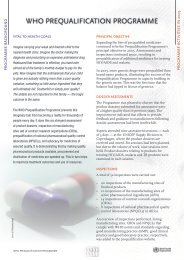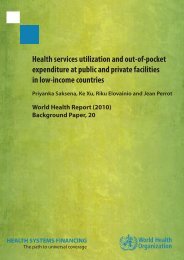Prepared by: Dr. Musa Ajlouni January, 2010 - World Health ...
Prepared by: Dr. Musa Ajlouni January, 2010 - World Health ...
Prepared by: Dr. Musa Ajlouni January, 2010 - World Health ...
Create successful ePaper yourself
Turn your PDF publications into a flip-book with our unique Google optimized e-Paper software.
5.4 Payment mechanismsMOH and RMS employees are paid salary and benefits according to the civil/armyservice regulations and the category, grade/level and step or rank to which theyhave been allocated.The salary and benefit system is clearly defined and the rules are well followed andwell known <strong>by</strong> all staff. However, there are two issues in relation to compensationand benefits within the MOH.The first is that basic salary only represents between 15% (for doctors) to 32% (fornon-doctors) of total take home pay. The balance of the take home pay is made upof a variety of allowances and incentive payments, which do not affect anindividual’s pension entitlement upon retirement.The second issue is that, due to the differential allowances paid for qualifications,the take home pay for individuals occupying positions of similar levels ofresponsibility and authority may vary greatly. For example, a non-doctor Director (ofa Directorate in the central MOH), may receive one quarter of the amount paid for adoctor-Director. This can be viewed as unfair since the performance expectations forboth Directors are the same. 35In the private health sector, every hospital has its own salary scale regulations. Mostphysicians working in private hospitals are self employed in their own clinics. Theyare paid <strong>by</strong> patients through the hospital on fee-for –service basis. Prospectivepayment mechanisms are not common in Jordan.In University hospitals, salary and benefits for employees are paid according to theuniversity regulations. Most physicians working at university hospitals have jointappointments as faculty and hospital consultants. Therefore; they are paid a monthlysalary <strong>by</strong> the university according to the faculty remuneration system and paid <strong>by</strong>the university hospital according to a specific arrangement based on fee-for-service.5.5 Supervision systems and mechanismsLicensure rules are hindering professionals who are not registered or licensed topractice their respective profession, for protecting the society from malpractice orabuse of clinical privileges. The ministry has full authority to withhold or abstain fromgranting institution or professionals' licensure.Performance appraisals are conducted periodically and documented for the majorityof staff. Depending upon the overall rating, the result of the performance reviewvaries, from the awarding of an annual pay raise to dismissal from the MOH.Performance evaluations within the MOH and other public sectors tend to be basedon whether an employee abides <strong>by</strong> working hours and on their behavior, rather thanon work performance. Most healthcare managers in Jordan have received notraining in how to conduct performance appraisals in ways that are intended toencourage high performance and to identify staff development needs. 3564


